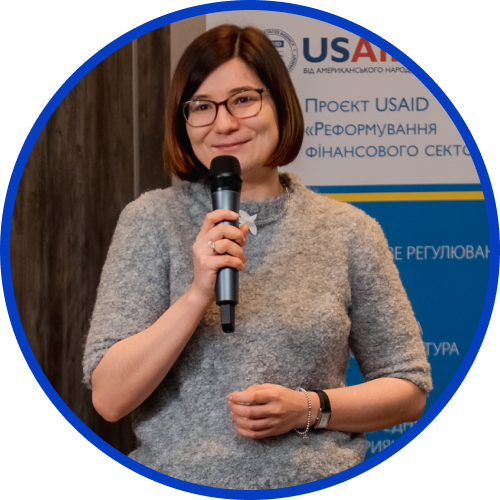Wartime banks: who protects public deposits
[ad_1]
An increase in the amount of hryvnia deposits has a positive effect on the country’s economy. When people invest in banks instead of buying imported goods or foreign currency, pressure on prices and exchange rates is reduced. In addition, funds placed on deposits are a resource for crediting the economy, a factor in stimulating economic development.
Citizen funds, in turn, are protected by the Deposit Guarantee Fund, which, in accordance with the law, not only reimburses deposits in case of bank bankruptcy, but also carries out temporary administration and liquidation of banks.
Thus, after the decision of the regulator on the bank’s insolvency, the Guarantee Fund introduces a temporary administration in it. At the same time, preparations are underway for the start of payments to depositors, and a competition is announced to find an investor interested in withdrawing the bank from the market. At this stage, for example, a qualified investor can apply for the purchase of an insolvent bank as a whole, or apply for part of its assets and liabilities. If there are no takers, the bank will be liquidated. The guarantee fund begins pre-sale preparations, and later the sale of assets that were on the bank’s balance sheet.
“The received funds are settled with clients (creditors) whose funds are not protected by the Fund’s guarantees, for example – legal entities. During the period of martial law, the legislation provides for a special procedure for meeting the demands of the bank’s creditors, who are executors under state contracts for defense procurement. In fact, the requirements such creditors are repaid out of sequence of creditors’ claims. An important condition for this is that the state contract for defense procurement must be up-to-date, which is confirmed by the authorized central body of the executive power,” explains Anastasiya Voronova, head of the legal group of the USAID Financial Sector Reform Project.

Anastasia Voronova
Regardless of whether willing investors are found, the Guarantee Fund begins refunding deposits to individuals as quickly as possible: by law, no later than 20 working days from the day the bank’s withdrawal from the market begins; in practice – even faster.

In general, during the entire period of its existence – since 1998, the Guarantee Fund accompanied the withdrawal of more than 100 banks from the market and paid out almost 104 billion hryvnias to depositors. 2.5 million people received compensation. Today, the Fund’s guarantees are extended to deposits of individuals, including FOP
As a result of the full-scale war, the protection of depositors has undergone an unprecedented strengthening thanks to a separate law, according to which Ukrainians are guaranteed 100% reimbursement of all deposits during martial law and within three months from the date of its termination or cancellation. This decision, as the Guarantee Fund explained, was aimed at increasing depositors’ confidence in the banking system.
“This is probably one of the most important legislative changes aimed at supporting the stability of the financial system, which was introduced during the period of martial law,” Anastasia Voronova believes.
Before that, we remind you, the guaranteed compensation amount was limited and each depositor was paid no more than UAH 200,000 in one bank. After the victory, the restrictions will also return. But the maximum amount of compensation will increase and will amount to UAH 600,000.
During the full-scale war, the Guarantee Fund has already paid out UAH 8.6 billion to depositors of liquidated banks. The institution did not stop the payment process for a single day.
“The fund is fully capable of its work. There were no signals that something was going wrong,” Serhiy Fursa said, answering the question of whether the FGVFO worked effectively during the war. At the same time, the expert adds that there are currently no signs that the withdrawal procedure may affect other financial institutions in the near future.
[ad_2]
Original Source Link









